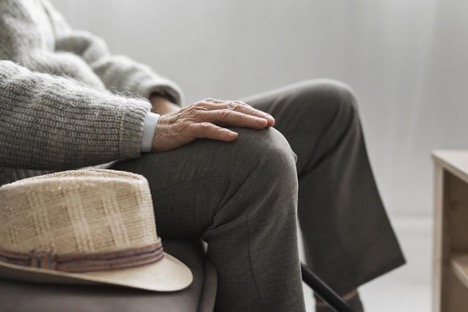How Nursing Home Elopement Can Harm Your Loved One
If you have a loved one in a nursing home, you may expect them to stay safe and monitored. However, older individuals with mental issues have a high risk of elopement. Nursing home elopement occurs when an older adult who is confined to a nursing home wanders away. This can carry high risks for your loved one’s health.
Nursing homes are required to have enough staff on hand precisely to prevent elopement from happening. Staff must also be thoroughly trained on how to protect residents from wandering and how to handle the situation if it ever occurs.
Elopement Can Be Considered Abuse
Nursing home elopements are extremely dangerous for an older adult, especially if they suffer from illnesses like dementia or Alzheimer’s. In most cases, elopement is possible when the nursing home lacks adequate care and supervision.
There are different reasons why an elderly person with cognitive issues can leave the facility on their own. Common causes include insufficient staff training, understaffing, and failure to provide residents with adequate care.
Additionally, in most nursing home elopement cases, staff members knew that there was a risk of elopement due to the resident’s obvious cognitive decline. Proper precautions are needed to prevent situations like this from happening, making the nursing home liable for any injuries or deaths.
How Common is Nursing Home Elopement?
According to studies, around 35,000 nursing home residents wander from facilities every year. Generally, around 13 to 24 percent of elderly individuals engage in an elopement. About 60 percent of those with dementia wander as well, stressing the need for nursing homes and other facilities to take all the necessary precautions to ensure that their residents remain safe.
Nursing homes are required to set specific procedures in place to prevent elopement from happening. This starts with having sufficient staff, security personnel, and round-the-clock supervision.
Without these measures, it’s all too easy for a senior to get up and wander around, sometimes even ending up outside the facility. Without said procedures, there may be more nursing home elopement instances that may result in serious injuries or even death.
How Does Nursing Home Elopement Happen?
Many residents of nursing homes have some type of mental impairment due to dementia, Alzheimer’s, or stroke. As a result, many of them end up wandering because they believe they have some mission to accomplish somewhere else.
In some cases, elopement might happen because a person experiences a change in their medication that adversely affects them or because of new living arrangements. Often, nursing home elopement occurs when the older adult goes to the bathroom without supervision and then ends up wandering out of the building as they forget where they were going.
Risks of Nursing Home Elopement
Nursing home elopement is dangerous to elderly residents in several ways. There can be lasting consequences for them and their families as well. The risks include:
- Confusion: Elopement can cause confusion if the individual suffers from memory loss. Not being able to recognize one’s surroundings can lead to panic and emotional trauma that can be lasting.
- Injuries: Elderly people are at a greater risk of falling, resulting in a myriad of injuries. Bruises, broken bones, and even head trauma may occur from a fall.
- Death: In the worst-case scenario, elopement can result in the death of an older person. Depending on the weather conditions, they can be exposed to the elements and risk freezing to death or die of dehydration. If they wander or fall into a body of water, they may drown.
Conclusion
It can be difficult knowing how to deal with nursing home abuse & neglect when a loved one with cognitive decline decides to leave the facility and gets injured or dies. The first step in fighting back is to consult with a nursing home abuse attorney as elopement can be considered abuse. A seasoned lawyer will know how to build a strong case on your behalf to get the compensation you are due to make up for your loved one’s injuries and pain.

